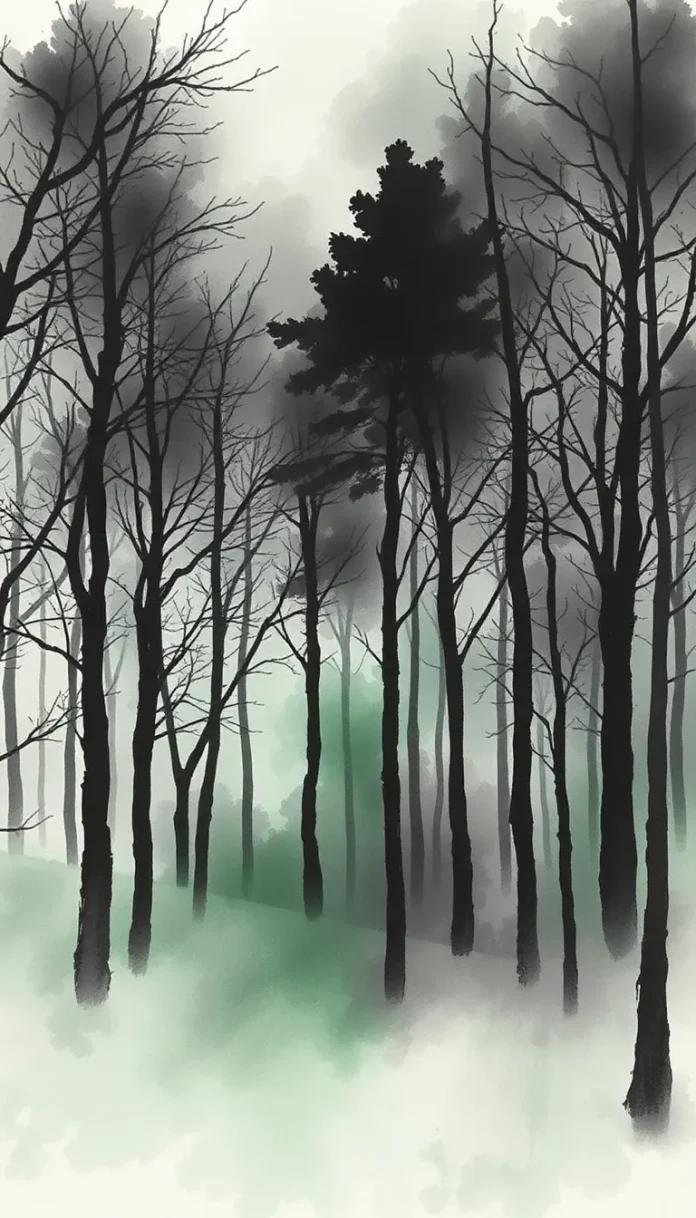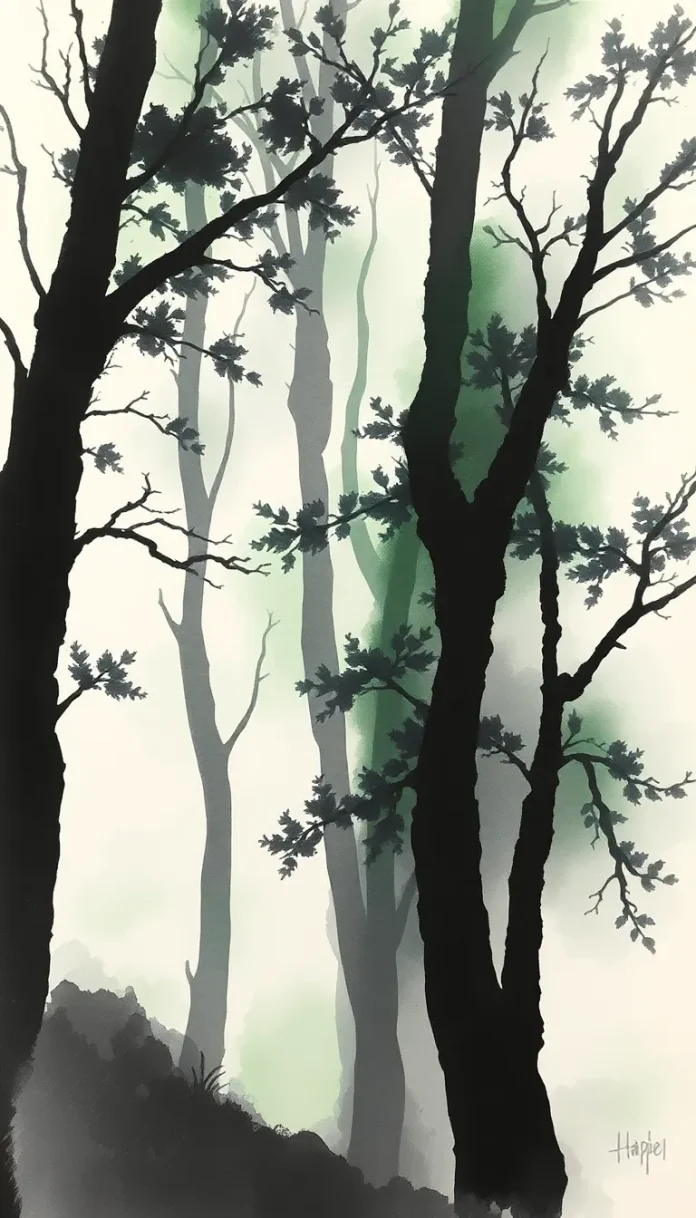Remnants of the Golden Reveille
Walked a youth, a poet cursed from the dawning of his tender years—
A haunting spirit, forever burdened by memories of a brilliant, yet ephemeral childhood,
Where laughter had danced amidst the light of an eternal summer and hopes soared like sparrows
In a realm far removed from the ruthless embrace of fate.
He wandered in that barren desert, where time itself seemed entrapped in the twisting gales
Of a decimated yore, each grain of sand a relic, a vestige of some forgotten dream.
Thus did the young poet carry within him the agony of memory,
For even in the solitude offered by that vast emptiness, shadows of the past
Whispered softly and mournfully upon the winds, recounting jubilant days now shrouded in sorrow.
Once, in a cleft of his heart, there lay an unwritten promise—a letter penned
In the innocent hand of his childhood, a missive meant to immortalize fleeting hours
Of enchantment and wonder. Its pages, now faded as autumn leaves, concealed heartfelt musings
And verses wrought with the mirth of days when the world was cradled by the gentle hands of joy.
But time had conspired upon it, scattering its essence in the unyielding winds.
As he ambled through the undulating dunes, his soul recalled a long-lost cadence
Of a distant lullaby, the harmony of words woven by a secret friend—
A letter more than mere words, a beacon once kindled amid the penumbra of despair.
And on a day wrought with the gloom of inevitable fate,
Beneath the glare of a merciless sun, the lost epistle revealed itself, half-buried in the sands,
Its tattered seal an echo of promises once fervent and bright.
He knelt before that relic, trembling with the weight of recollections strung alongside regret,
And in the silence of that forsaken wilderness, he read aloud the fragile script
That had, so long ago, inscribed a testament of youthful ambition and tender hope:
“Oh, kindred spirit of the bright morn,
When summer’s fervor filled thy dreams,
Let not despair our hearts adorn,
For in the laughter of the streams,
Our souls shall rise on wings aloft,
To realms where sorrow turns to night,
And every tear, at last, aloft,
Will birth again in dawn’s pure light.”
Thus spake the long-ago notations, a litany of devotion and longing,
Whispering of the innocence that had vanished, like twilight dwindling into night.
Each syllable, a delicate conjuration of reminiscent bliss, stirring the blood of the poet’s veins
And giving rise to a torrent of melancholic wonder—a grievous symphony of memory and regret.
He recalled the days, oh so tender, when the desert was but a garden of riotous bloom,
Where the wind carried fragrances of wild jasmine and dew-kissed petals,
And the young poet, with eyes unburdened by the harsh reality of time,
Had danced in the meadows of eternal spring, enraptured by the poetry of life.
Yet that Edenic idyll was forever lost, a mirage borne out of the caprice of destiny,
Now supplanted by the unrelenting scrutiny of fate’s cruel decree.
In the solitude of his forlorn exile, the letter became a mirror—reflecting the man
He might have been had the bloom of youth not been so cruelly harvested by a bitter curse,
Had his pen not been an instrument of plaintive prophecy, destined to capture
The agony of dreaming beneath a relentless expanse devoid of solace.
The page, with its frayed edges and sorrowful ink, evoked in him a spectrum
Of emotions, each note a dirge reminiscent of a long-lost symphony:
“Remember then, when every star was bright,
And dreams unfurled like banners in the breeze,
That even in your darkest night,
Love’s ember still doth sweat and seize.”
In that sacred moment, the young poet recognized that his journey
Across the barren, ceaseless sands was not solely a traverse through physical desolation,
But a pilgrimage into the inner sanctum of his soul—a quest to exhume
The buried treasures of childhood, marred though they were by the inevitable march of time.
For the letter, a vestige of a simpler, untroubled world, spoke as clearly as any divine revelation,
A reminder that even in the twilight of despair, there lay the vestige of a luminous past,
A beacon that guided his weary footsteps through the labyrinth of his own misfortune.
With trembling hands and a heart parched by the tannings of solitude, he clutched
The fragile parchment close to his breast, as if by some arcane miracle it could rekindle
The lost cadence of his youth—a time when every smile shimmered with the promise of eternal possibility,
Before the curse had woven its lament into the fabric of his mind.
The desert, vast and indifferent, bore silent witness to his anguished monologue,
Its barren expanse resonating with the cries of forgotten dreams, echoing the lamentations
Of a soul that yearned to be reunited with the unfettered realms of innocence.
Thus commenced a new chapter in the saga of the cursed poet—a relentless descent
Into the caverns of his own memory, where the ghosts of yesteryear clung to every corner.
Each step, each pause within that interminable journey, was imbued with the inexorable pull
Of a time when life was a cherished sonnet, and every heartbeat a verse of unspoken joy.
Yet the cruel hand of destiny, with its meticulous artistry, wove a narrative marked by futility,
A dirge set to the minor key of sorrow—a requiem echoing in every silent breath.
He recalled the voice of his dear childhood confidant, now but a memory, whose words
Had once kindled in him a passion for the beauty of ephemeral things:
“Fear not the encroaching dusk, dear friend,
For every falling tear, a star ignites,
And though our paths may sadly end,
In twilight, we shall find our lights.”
But as the sun dipped low, surrendering to the inexorable darkness,
The battered letter, fragile as the last sigh of a dying ember, revealed its final secret.
Its concluding verse, penned in a trembling hand long past, was a foretelling of inevitable despair:
“In the annals of our fading days,
When hope is but a whispered prayer,
Know that love, in its solemn ways,
Must yield to night’s unyielding care.
And thus, dear soul, we bid adieu,
To childhood’s fragile, fleeting gleam,
For fate decrees, as all things do,
The shattering of every dream.”
These words, as timeless as the drift of sands in the wind, bore the weight of loss
And the bitter sting of silence that follows the inevitable ravage of time.
They spoke of a destiny unalterable, an edict pronounced by the unrelenting void
That held dominion over the heart’s tender sanctuaries.
For in that mournful reckoning, the young poet’s spirit, scarred by the relentless hand of destiny,
Recognized that the memories he clutched so dearly were but fleeting shades—
Echoes of a lost era, now consigned to the recesses of the past,
Where even the most sacred dreams must inevitably disintegrate into sorrow.
He rose, each action an elegy to what once was, and resumed his solitary wanderings,
The letter a solemn relic pressed against his chest—a final, unspeakable pact
Between the innocence of bygone days and the cold, inexorable march of the cursed present.
The desert, in its vast indifference, became a cathedral of despair,
Where every whisper of the wind carried the lament of forgotten innocence
And every ripple of sand was a verse in the endless elegy of time.
And so, with each step etched in the annals of doomed destiny, the young poet embraced
The inevitable decline of his own fragile existence—a fate preordained
By a decree as immutable as the shifting dunes that now enveloped him.
In that mournful communion with the past, he discerned the grand, irrevocable truth:
That every cherished memory, every fleeting spark of youthful delight,
Was but a prelude to the tragic cessation that awaited him—a final descent
Into the silence of a world bereft of light, where dreams dissolve as swiftly
As they are born.
Thus, in the heart of that infinite, unsparing desert, beneath a canopy of sorrowful stars,
The young cursed poet vanished, leaving behind but whispers in the wind—
Echoes of a life marked by brilliant agony and irretrievable beauty,
A testament to the inescapable cycle of hope and despair,
Where every treasured memory, once radiant with the glow of childhood,
Succumbs, in the end, to the merciless embrace of an inevitable darkness.
In that final, resounding silence, the letter lay still—a monument
To all that was lost, to every tender hour now consigned to oblivion.
Its fragile script, bathed in the crimson glow of a dying sun, continued to murmur
The inexorable truth of our mortal journey: that in the realm of love and remembrance,
Even the brightest flame must falter in the wake of an endless night,
And every soul, no matter how fiercely it once burned,
Must eventually yield to the bittersweet requiem of its own demise.


